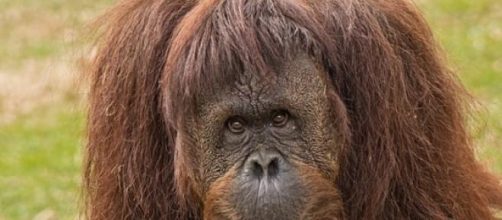Last week Sandra, a twenty-nine year old orangutan, was granted freedom by a court in Argentina after they decided she was entitled to basic legal rights. The decision came only days after a chimpanzee in the United States was denied similar rights.
The case was argued on the basis that Sandra had a basic right to life in conditions suitable to her needs, as such she should be recognized as a 'non-human person'. The court declared that Sandra, a captive of the zoo for some twenty years, likely possesses sufficient cognitive capabilities to grant her basic human legal rights.
It is a highly contentious decision. Critics warn of over-sentimentalizing animal behavior, especially that of apes, as we may wrongly liken human like behavior for higher intelligence. The opposition also centres around legal definitions of what sufficiently makes a person a person. For some the definition is an ability to fulfill certain obligations or duties in society, as such an orangutan or an chimpanzee is incapable of being a person as they cannot fulfill these duties. This was the reasoning of the court in the US. However, the Argentine court perhaps has a more philosophical view.
Now, Sandra is set to be transferred to a sanctuary in Brazil unless the zoo appeals the courts ruling.
The decision, if upheld, is expected to spark further appeals in an effort to grant animal species basic legal rights and end confinement for those which live in poor conditions or suffer mistreatment at the hands of zoos or other organisations. The next challenge will be expanding this case to species other than those that we can recognize our own human behavior in, dolphins for instance - mammals renowned for their intelligence.
This decision perhaps represents a slight shift in our viewing of nature, it is certainly an important step forward in providing greater rights for animals. Although confined at the moment to those with human-like traits, predominantly that of intelligence, it is certainly a step in the right direction for ending the suffering that many animals go through for our entertainment and satisfaction.

